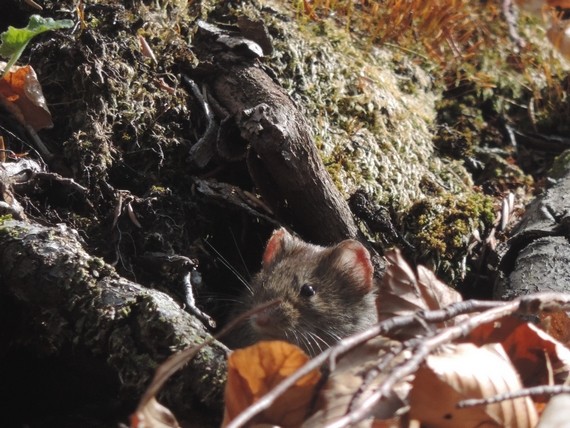Mouse fever – guidelines and prevention
Views: 22
The following text contains helpful advice primarily intended for organizers of hiking camps and hut wardens, but also useful for anyone who enjoys spending time outdoors. Due to the extremely high number of mice and other rodents this year, the risk of contracting mouse fever, which is a very dangerous disease, is significantly increased. Mouse fever is also known as hemorrhagic fever.
Mouse fever can be very serious if not treated promptly and, in extreme cases, can even be fatal. This is a viral disease that primarily attacks the kidneys and impairs the body’s ability to cleanse itself and its fluids. The virus is mainly found in excretions and urine of small rodents and the disease is usually transmitted from spring to autumn. The main reason for occasionally increased occurrence of mice are mild winter which didn’t reduce the number of rodents, and the fruitful autumn rich in forest fruits (especially beechnuts and acorns).
The disease can be transmitted in two ways: by inhaling dust containing dried excretions of small rodents and through animal bites, as their saliva contains a large number of bacteria that can cause mouse fever. Infected cats and dogs can also be potential carriers. The disease is always transmitted from animals to humans and never from human to human. Special caution should be exercised in forests, fields, and forest edges, as these are the best environments for rodents. These are also the places where we often camp in the summer.
If possible, avoid sitting on the ground, store food high above the ground, and maintain good hand hygiene. Photo: PZS/Matej Ogorevc
The incubation period lasts between 12 and 16 days, after which symptoms start to appear, which can initially be similar to a stomach virus or kidney inflammation. Infected persons usually complain of severe abdominal and kidney pain. Diarrhea may occur and urine output decreases as kidney function declines. High fever and concurrent chills with a sever headache are also present, and the patient is, understandably, completely exhausted. The condition quickly worsens, vision becomes blurred, and the whites of the eye turn red, which indicates internal bleeding. This can be further confirmed with blood in the urine (if the patient urinates at all), stool, and sputum. Subcutaneous bleeding, which is easily noticeable, can also occur. The number of thrombocytes drastically decreases, which makes it difficult for blood to clot. In extreme cases, this can lead to the patient bleeding out.
The main factor of effective treatment is quick intervention. There are no vaccines or medicines for mouse fever and the most common treatment is dialysis, which can last up to a month. Recovery is long, taking up to half a year. Therefore, prevention is the most important and effective measure.
Avoid areas and locations with many rodents, where you could easily inhale contaminated dust. Besides forests, fields, and meadows, these places include old haylofts, barns, granaries, and food storage areas. If you see a dead mouse, carefully remove it with latex gloves and a mask that covers your nose and mouth. Put the dead animal in a bag, bury it, and cover it with lime. Thoroughly wash your hands with warm water and soap and dispose of the gloves. If you notice an area with a lot of droppings, spray them with water to prevent dust generation. Disinfect surfaces of enclosed spaces with disinfectants (the simplest being bleach), which should remain on the surface for about 45 minutes.
Some tips for camping:
- Secure your food and store it in places inaccessible to small rodents (such as high shelves).
- Don’t throw food and leftovers in the trash, as this can attract numerous animals and rodents.
- Look out for droppings and burrows when setting up tents. If you notice them, pitch your tent elsewhere. The same applies if you smell urine and/or droppings.
- Don’t touch dead animals; follow the steps described above if you find any.
- Don’t drink water from natural springs.
- Don’t lie on bare ground.
- Wear a protective mask when working in dusty conditions (sawing wood, sweeping, etc.).
- Don’t pet animals! Wild animals usually fear humans and try to avoid them. If a brave animal approaches a human, it’s most likely infected with a contagious disease (mouse fever, rabies, etc.).
- If you notice signs of infection, see a doctor immediately. You will have your urine, stool, and blood checked and a diagnosis will be quickly established based on the analysis results. If the disease is detected early, the treatment can be shorter and more effective.
Written by Matej Ogorevc

